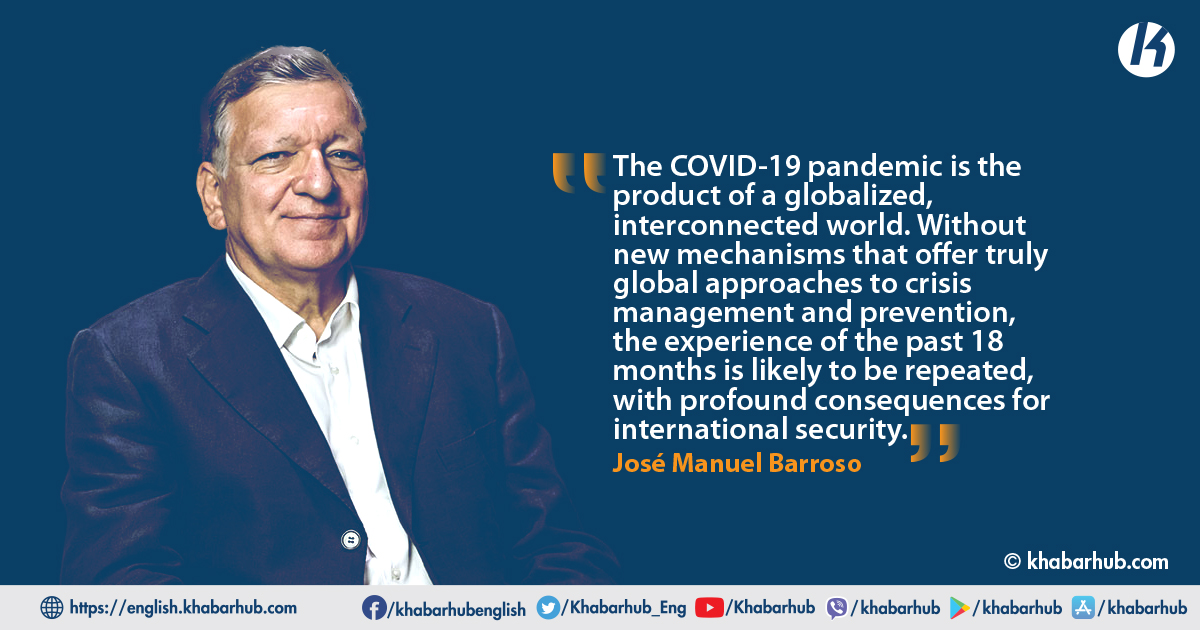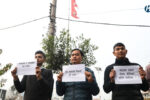The COVID-19 pandemic has instilled many harsh lessons. But the most important is that infectious-disease outbreaks pose a risk not just to public health but also to global security.
Like nuclear proliferation, terrorism, and climate change, COVID-19 has shown that pandemics can rapidly undermine social stability and economic well-being.
This point may seem obvious now. But before the COVID-19 crisis, infectious disease barely registered on the global security agenda. If efforts to change that by establishing new funding and monitoring mechanisms for pandemic preparedness are to succeed, half measures won’t cut it.
To avoid a repeat of history, our preparations must reflect the true extent of the challenge. We must recognize that pandemics now represent one of the biggest – and most likely – threats to global security.
Preventing future pandemics will require not only the same level of investment as other global security threats, on which trillions are spent routinely, but also an entirely different way of thinking about global security.
The pandemic represents a new form of globalized crisis, one that is both caused and exacerbated by the modern world’s interconnectedness.
The Spanish influenza pandemic a century ago was not this kind of crisis. Back then, most people across the globe lived in less dense rural settings, and international travel was much slower and undertaken by only a small fraction of the population.
Mustering a genuinely global response is necessary both to end this crisis and to avert the next one. It is not just individuals’ health that is at stake.
But we saw something similar in 2008-09, when economies fell like dominoes. That was the first globalized crisis of this century, and we are now coming to grips with what will be the century’s defining crisis: climate change.
The common denominator in each case is that the crisis demands solutions that no individual government can provide on its own.
An infectious disease cannot be fought with traditional security countermeasures such as economic sanctions, bilateral diplomacy, deterrence, or military posturing. Rather, it calls for scientific collaboration, resilient health systems, and long-term investments in global health networks.
Globalized crises require that we globalize critical resources – in today’s case, vaccines. G20 governments have the power to lead the way by ending the vaccine hoarding and export bans that have impeded supplies, and by donating more doses to COVAX. But as urgent as such measures are, they are mostly band-aids – solutions to a crisis within a crisis.
Shows of force and unilateral acts of national self-preservation are useless. Global collaboration, strategic multilateralism, and transnational compassion are the only way out of this kind of disaster.
Judging by the current global distribution of COVID-19 vaccines, we have yet to muster the necessary response. The coronavirus is still winning, and a lack of global coordination is the principal reason why.
Instead of finding ways to work together toward common solutions in the face of an unprecedented crisis, key governments are still putting their national interest first, at the expense of the global response we need.
Mustering a genuinely global response is necessary both to end this crisis and to avert the next one. It is not just individuals’ health that is at stake.
As COVID-19 has shown, pandemics can push millions of people into poverty and place unprecedented restrictions on their mobility.
Such conditions can subvert even traditionally stable countries, by increasing the threat of political polarization, civil unrest, and violence. The longer the crisis continues, the greater that threat.
Globalized crises require that we globalize critical resources – in today’s case, vaccines. G20 governments have the power to lead the way by ending the vaccine hoarding and export bans that have impeded supplies, and by donating more doses to COVAX. But as urgent as such measures are, they are mostly band-aids – solutions to a crisis within a crisis.
To avoid a repeat of COVID-19, we need more expansive pandemic preparedness mechanisms built around the model of globalized resources that COVAX pioneered. We cannot wait until the next outbreak has already become a global security threat. By that time, it will be too late.
(José Manuel Barroso, a former president of the European Commission (2004-14) and prime minister of Portugal (2002-04), is Chair of Gavi, the Vaccine Alliance)
Copyright: Project Syndicate









Comment